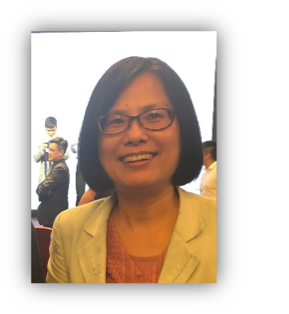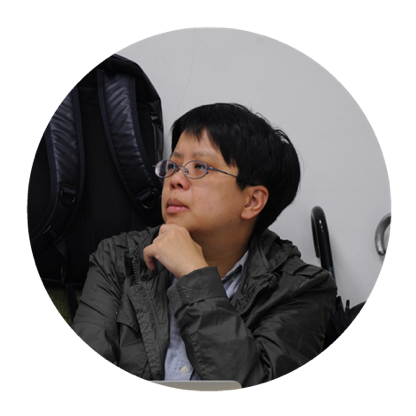Feminist Activism and Gender Mainstreaming in Taiwan
By: Shu-Ling Hwang and Wen-ting Wu
In 2016, Tsai Ing-wen was elected as Taiwan’s first female president, but unlike other Asian female heads of state, she didn't come from a political family, a phenomenon noted by international observers. May 24, 2019, the International Day against Homophobia, Transphobia and Biphobia, Taiwan became the first Asian country to legalize same-sex marriage, setting another record of gender equality in Asia. Why has Taiwan become the most gender equal state in Asia in less two decades? The positive efforts of feminist leaders to promote gender mainstreaming are worthy of attention, and their campaign strategies as well as the impact of gender mainstreaming also merit attention.
In our recent IFJP article, Social Capital and Feminist Power: Promoting Gender Mainstreaming in Taiwan, we discuss how a group of 30 Taiwanese feminist activists who served as civil members in the national gender equality machinery from 2005 to 2009 successfully institutionalized gender mainstreaming throughout the central government, including the installation of individual gender equality committees in all ministries. We argue that their success lay in their realization of the importance of trust-building among various stakeholders.
In our work we find activists intentionally strengthened their social capital among themselves and with women’s organizations and feminist legislators.
Activists established social capital with civil servants by employing emotion work. This strategy mirrored the conscious-raising and empowerment techniques commonly used in women’s organizations, and eventually resulted in the transformation of some civil servants into femocrats. The activists also created social capital for future women’s movements and the state via strategies such as building up their legitimacy, shifting the balance of power, making use of confrontational tactics, and institutionalizing communication mechanisms.
Photo credit: Ken Cho
In our paper we argue that Putnam’s social capital theory allows us to see the social relationships feminist activists need to gain potential allies and to engender political power, legitimacy and mobilization in the political process of implementing gender mainstreaming. We detail two strategies useful for strengthening communication between women’s movements and the state: increasing the emotional dimension in gender training programs to change civil servants’ attitude toward gender mainstreaming and feminists, and setting up gender equality mechanisms throughout the government to enable civil society organizations to participate in decision-making.
Gender mainstreaming in Taiwan is distinguished by two characteristics. First, the extensive gender equality machineries enjoy highest administrative status and participatory democracy, which allows civil society representatives to design action plans and to co-manage them with the premier, ministers and senior officials. In contrast, a 2010 UN global synthesis study point out that national mechanisms for gender equality in most countries have relatively low status and are not working in a collaborative way with civil society organizations. Second, unlike in most countries where gender mainstreaming tends to be implemented in small-scale projects Taiwanese activists demanded wholesale gender mainstreaming implementation throughout the government.
One example of the way gender mainstreaming is evident in Taiwan is the presence of LGBTQ activism. The gay pride parade is held in several cities in Taiwan every year. The parade in Taipei, the capital of Taiwan, is considered to be the Asia’s largest, attracting tens of thousands of people from all over the world. This image shows participants marching in Tainan City in 2018.
Women’s political empowerment is another positive effect of gender mainstreaming. The Beijing Declaration and Platform for Action, issued in 1995 by the United Nations Fourth World Conference on Women, proposed that countries should endeavor to increase the proportion of women in decision-making positions to at least 30%. In 2017, however, only 44 of the 138 countries (23.5%) had more than 30% of female lawmakers in the central government. Taiwan is the only Asian country to be included in this rank, with women accounting for 38.1% of the legislators and an increase of 16.9% since 2007.
The strategy of emotion work—a legacy of the second wave of women's movements—could help feminist activists to build trust with the civil service, thereby helping reduce bureaucratic resistance to gender mainstreaming. Long-neglected links between feminists’ social capital and the effectiveness of gender mainstreaming, and use the example of feminist initiatives in Taiwan as an example for future mainstreaming initiatives.
Read the full article here: Social capital and feminist power: promoting gender mainstreaming in Taiwan
Shu-Ling Hwang is a professor in the Center for General Education at the National Defense Medical Center (Taiwan). She has a PhD in social welfare from the University of Wisconsin-Madison. Her recent research focuses on gender mainstreaming, state feminism and femocrats. She was the director of the Taiwanese Feminist Scholars Association and is a current member of the Gender Equality Committee of the Executive Yuan (Taiwan’s Cabinet).
Wei-ting Wu, is an assistant professor in the Graduate Institute for Gender Studies at Shih Hsin University. She received her PhD from the Department of Political Science at City University of New York, U.S.A. Her research areas are social movement, gender politics and state-society relations. Wei-ting is also a civil member of the Executive Yuan Gender Equality Committee.
Each blog post gives the views of the individual author(s) based on their published IFJP article. All posts published on ifjpglobal.org remain the intellectual property and copyright of the author or authors.





